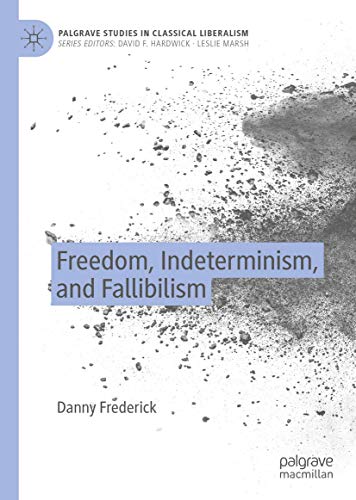Doctrine that nothing can be known for certain; that is, there is no infallible knowledge, but there can still be knowledge. We need not have logically conclusive justifications for what we know.
This was particularly insisted on by the American pragmatist Charles Sanders Peirce (1839-1914) in his opposition to foundationalism.
Also see: relevant alternatives theory, epistemic closure
Table of Contents
- pragmatism
- epistemic closure principle
- pragmatic (or pragmatist) theory of truth
- propensity theory of probability
- Charles Sanders Peirce
Last update 2020-06-17. Price and product availability may change.










